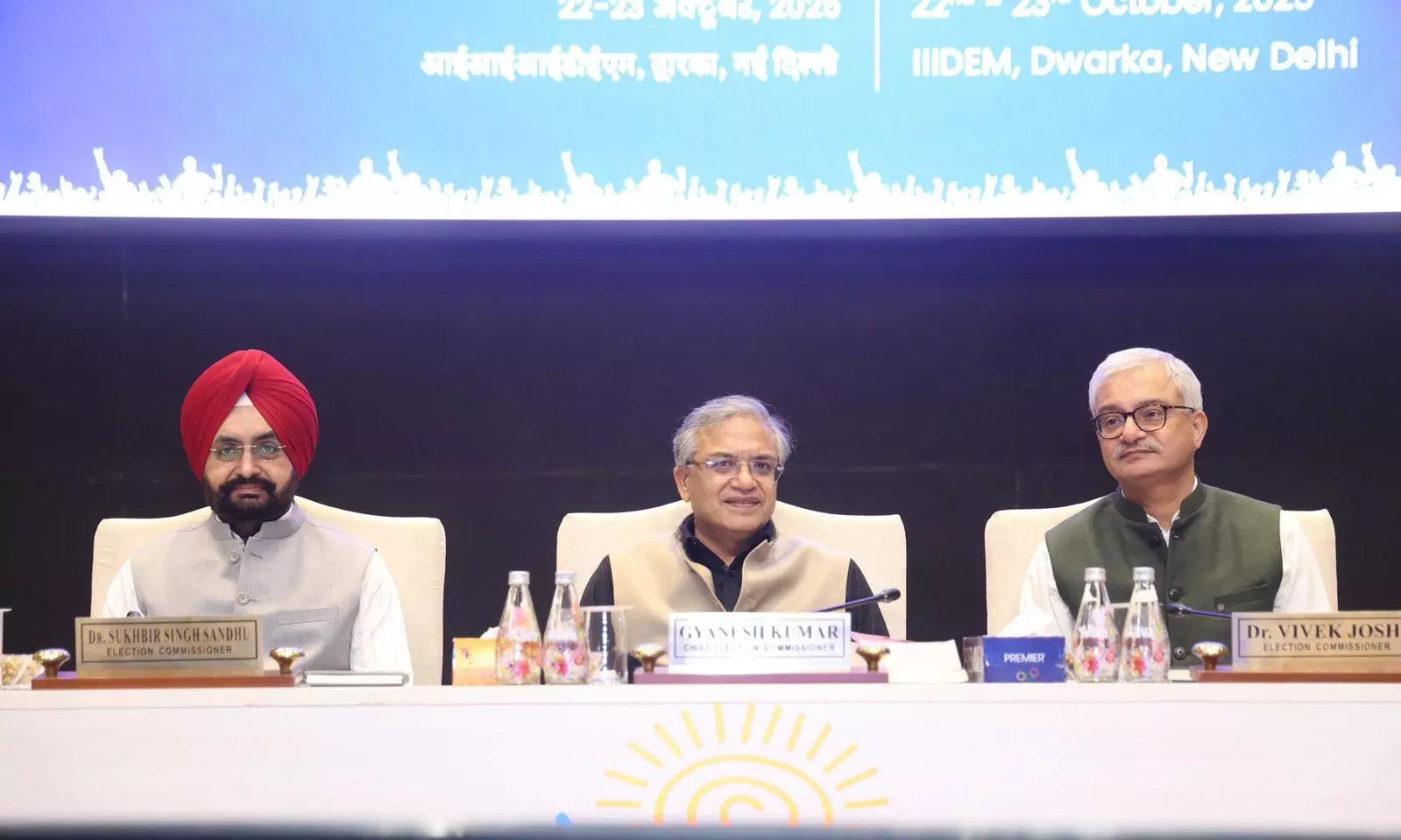
Nationwide SIR: Election Commission steps up preparations
The roll cleanup exercise will not be carried out in states where local body elections are taking place or are due

Ramping up its preparations for the Special Intensive Revision (SIR) of voter lists across India, the Election Commission's top brass on Wednesday (October 22) assessed the progress made in mapping the current electors with voters as per the last SIR in different states. The exercise will help state poll machinery determine how many electors were added to the electoral roll after the last SIR and still appear in the latest voter list.
As was the case in Bihar, the voters will not have to submit any documents, but only need to provide semi-filled enumeration forms. There is a view in the EC that mapping of current electors with those in the last SIR will ensure that more than half the electorate, in most states, may not need to give any documents in SIR.
According to a statement, the Commission also reviewed the status of the appointment and training of district election officers, electoral registration officers, booth-level officers, and booth-level agents appointed by political parties. The two-day meet was the second since September to decide on the massive exercise.
Also Read: SC asks Election Commission to fix errors in Bihar voter list in SIR case
First phase of SIR
Chief Election Commissioner Gyanesh Kumar and Election Commissioners S S Sandhu and Vivek Joshi met all state Chief Electoral Officers (CEOs) to review preparedness. One strong opinion within the top EC brass was to hold SIR in phases, beginning with the states going for assembly elections next year. More states may be included in the first phase.
At the same time, the electoral roll cleanup exercise will not be carried out in states where local body elections are taking place or are due, as the grassroots poll machinery has been busy with it and might not be able to focus on SIR, officials said.
Assembly elections in Assam, Kerala, Puducherry, Tamil Nadu and West Bengal are due in 2026. Besides these five states, SIR could be held in a few other states in the first phase. A voter list cleanup exercise recently concluded in Bihar, where the final list with nearly 7.42 crore names was published on September 30.
The CEC had earlier this month said work is in progress to launch the SIR of electoral rolls in all states, and a final decision on its roll-out will be taken by the EC.
Earlier, responding to a question at a press conference to announce the Bihar assembly polls, the CEC said that a pan-India SIR was announced on June 24, while a roll-out of the Bihar SIR was still underway, adding, three commissioners will meet to decide on dates for the states to launch their SIRs.
Also Read: From Champaran to SIR to vote chori, Bihar’s electoral soul at stake
Several CEOs updated voter list
According to officials, the EC last month asked the state CEOs to be ready for SIR roll-out in the next 10 to 15 days. But for greater clarity, a September 30 deadline was set for the comprehensive cleanup exercise.
Several CEOs have uploaded the voter list published after their last SIR on their websites. The website of the Delhi CEO features 2008 voter list, when the last SIR took place in the national capital. In Uttarakhand, the last SIR took place in 2006, and that year's electoral roll is now on the state CEO's website.
The last SIR in states will serve as the cut-off date, just as the 2003 voter list of Bihar was used by the EC for intensive revision. Most states and UTs had the last SIR of the voter list between 2002 and 2004 and have nearly completed mapping of current electors with those from the last SIR.
The primary aim of the SIR is to weed out foreign illegal migrants by checking their place of birth. The move has assumed significance in the wake of a crackdown in several states on undocumented foreign migrants, mainly from Bangladesh and Myanmar.

